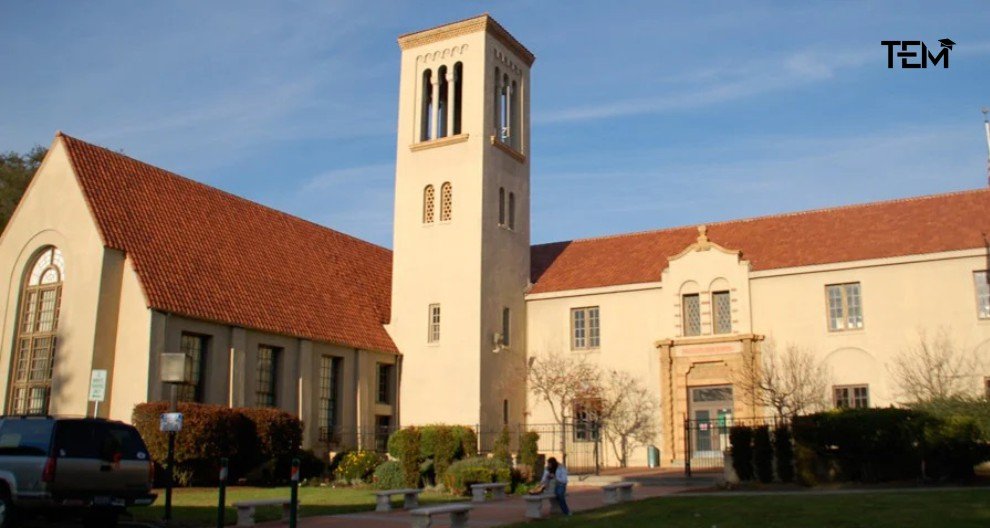The College of Engineering at the University of Nevada, Reno (UNR) has a long history of excellence in higher education in Nevada, dating back to the late 19th century when the state founded its first institution of higher learning. As the state’s flagship academic institution, UNR has supported the academic goals of many students through its distinguished engineering programs. The College of Engineering is committed to providing a comprehensive and immersive educational experience that prioritizes student success, engagement, and research excellence.
The College is known for its prolific research activities, which cultivate a culture of innovation and inquiry. Students have access to unparalleled opportunities for scholarly exploration and development, even at the undergraduate level. The College also hosts a variety of engineering clubs, ranging from the nationally acclaimed Nevada Cyber Club to the student chapter of the American Society of Civil Engineering, which recently celebrated its 100th anniversary. These clubs offer students a fertile ground to pursue diverse interests and professional growth in engineering.
Engineering Programs and Collaborative Innovations
The College of Engineering at the University of Nevada, Reno (UNR) offers a comprehensive array of engineering programs to suit diverse interests and career goals. The College has five departments: Chemical & Materials Engineering; Civil & Environmental Engineering; Computer Science & Engineering; Electrical & Biomedical Engineering; and Mechanical Engineering. These departments offer over 40 engineering degrees, minors, and certificate programs. One of the College’s pioneering initiatives is the nation’s first Batteries and Energy Storage Technologies Minor, where students create and test lithium-ion batteries from raw chemical components.
The College also collaborates with the College of Liberal Arts to offer an interdisciplinary Bachelor of Science degree in computational linguistics, which explores language through computational methods. Furthermore, with a $36 million donation from the George W. Gillemot Foundation, the College plans to enhance and expand the aerospace program, providing students with access to cutting-edge resources and opportunities in this dynamic field. Additionally, the College offers accelerated programs that allow talented students to complete both bachelor’s and master’s degrees in as little as five years, demonstrating its commitment to academic excellence and innovation.
Excellence in Engineering Education and Research
The College of Engineering has a faculty that comprises renowned researchers and scholars who excel in various cutting-edge disciplines. The faculty members have expertise in areas such as earthquake engineering, artificial intelligence, big data analytics, renewable energy technologies, environmental science, and unmanned vehicle systems. They are at the forefront of innovation in their respective fields. Several faculty members have received the National Science Foundation CAREER award, the agency’s most prestigious recognition for early-career faculty. This award highlights their commitment to groundbreaking research and academic excellence.
The College also has a faculty member who is a member of the National Academy of Engineering, which demonstrates the high level of expertise and leadership within the institution. The College has a student-teacher ratio of 27:1, which ensures a conducive learning environment. Students benefit from personalized attention and mentorship from accomplished faculty members. This facilitates an enriching educational experience and fosters a culture of collaboration and intellectual growth.
Enriching Student Experience through Diverse Opportunities
The College offers a variety of extracurricular activities and resources to enhance the academic experience of its students. Students can apply their engineering skills in real-world projects and competitions, such as the Aerospace Club’s rocket launches in the Black Rock Desert or the concrete canoe racing team’s participation in regional and national events. The College also promotes global engagement through its international exchange program for engineering students, which provides opportunities for immersive experiences and cross-cultural learning in countries such as Germany, Nepal, and South Korea.
Furthermore, the Engineering Tutoring Center is a valuable resource hub that offers comprehensive support to ensure students’ academic success. The center provides tutoring sessions and specialized review sessions for exams such as the Fundamentals of Engineering Exam—a key requirement for many engineering majors. The center helps students with the necessary tools and guidance to excel in their coursework and professional pursuits. Through these extracurricular activities and support services, the College of Engineering creates a dynamic learning environment that encourages students to explore their passions, develop practical skills, and thrive academically and professionally.
Fostering Diversity and Inclusion
The College of Engineering values diversity, equity, and inclusion (DEI) as essential pillars of its academic community. The College’s DEI Committee works to address systemic barriers of prejudice within the engineering community and society. The College also joins organizations such as the National GEM Consortium, which fosters diversity and increases the participation of underrepresented groups—African Americans, American Indians, and Hispanic Americans—in engineering and science at the master’s and doctoral levels.
Moreover, the College supports and collaborates with engineering clubs and groups such as the Society of Women Engineers and the National Society of Black Engineers. These clubs and groups create an inclusive environment where all students feel valued and empowered. They also raise awareness of diverse perspectives and provide resources and networking opportunities for underrepresented students in engineering.
Furthermore, the University’s Office of International Students and Scholars supports the diverse student body by helping international students. The office guides them on visa-related matters and employment options and aids them in cultural adjustment. The office helps international students overcome academic and personal challenges.
Career Development and Job Placement Initiatives
The College of Engineering supports the career development and job placement of its students through various services from its Career Services department. The College hosts job fairs in September and February that attract top companies and national agencies. These events provide students with opportunities to network, explore career options, and secure internships or full-time employment. Entities such as Panasonic Energy of North America, Redwood Materials, Voyager Space, Los Alamos National Laboratory, and the Nevada National Security Site participate in these events. They offer students access to diverse career pathways and industry insights.
The College encourages internship experiences, as they are important for future career endeavors. Career Services helps students find internships by providing guidance and resources. Many employers in the College’s network hire their interns for full-time employment after graduation. This shows the value of internship experiences in shaping students’ career trajectories.
The College also engages with employers by inviting them to present on campus. These presentations give students firsthand insights into company missions, cultures, internship programs, and entry-level positions. This interaction enhances students’ understanding of industry dynamics and fosters connections with potential employers. The College’s job board is a platform where students can explore job and internship opportunities that match their academic interests and career aspirations. This helps students transition from academia to industry.
Nurturing Entrepreneurship
The College has two courses for aspiring entrepreneurs: High Tech Entrepreneurship and Leadership for Engineering. High Tech Entrepreneurship introduces concepts, analyses, and personal skills and actions for launching a tech-based company. Leadership for Engineering helps students develop and apply leadership skills to collaborative and technical organizations. The College, in partnership with the College of Business, also has a five-year program for earning both a bachelor of science in engineering and a master’s degree in business administration (MBA).
About Dean: Erick C. Jones
Erick C. Jones became the dean of the College of Engineering at the University of Nevada, Reno (UNR) in September 2022. Dr. Jones is a researcher in industrial manufacturing and systems engineering. He has worked in industry, government, and academia for 25 years. He was a senior science advisor in the Office of the Chief Economist at the U.S. State Department. He was also a professor and associate dean for engineering graduate studies at the University of Texas at Arlington.
In addition, Dr. Jones belongs to several professional and academic organizations, such as the International Supply Chain Education Alliance (ISCEA), the Institute of Industrial and Systems Engineers (IISE), the American Society for Engineering Education, and the National Society of Black Engineers (NSBE). He has been a faculty advisor for IISE, NSBE, and other organizations for 10 years.
Quote

Also Read: The 10 Elite Engineering Colleges of 2024


